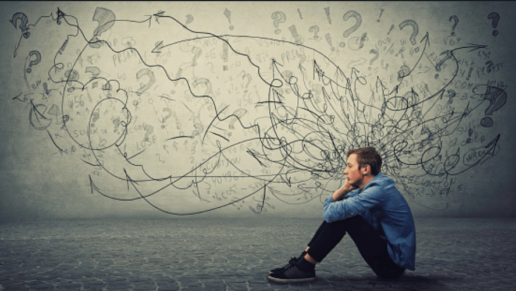Recovering from a substance abuse disorder is one of the bravest and most life-altering paths a human being can embark upon. And it’s an ongoing process — it doesn’t just “end” the day you get sober.
In addition to the personal experience of recovery, the entire field of substance abuse disorder recovery is constantly evolving, which is where National Recovery Month comes in.
What is National Recovery Month?
Also known simply as Recovery Month, National Recovery Month is a nationally-observed month in the US promoting and supporting new, evidence-based recovery and treatment modalities. It is also a centralized forum for celebrating the proud community of those in recovery — and those who love and support those in recovery. Finally, it’s a way to showcase the dedicated service providers and members of the community that make recovery possible for all.
National Recovery Month started in 1989 under the original name of Treatment Works! Month. In the beginning it was intended to be a way of honoring the work of addiction professionals (therapists, physicians and nurses, mental health professionals, drug and alcohol recovery counselors, rehab staff, etc.).
Eleven years later it was renamed National Alcohol and Drug Addiction Recovery Month to highlight not only the healthcare professionals in the field of addiction and recovery, but to the individuals themselves in recovery from substance use disorders. Finally, in 2011, the event transformed into its modern-day form, known as National Recovery Month. This change took effect as a proactive step to include not just healthcare professionals and individuals in recovery themselves, but to those working on and in behavioral health.
Recovery Month is now in its 32nd year and continues to commend, honor, and uplift those in recovery from substance abuse disorders and those who support them on their journeys. It has also expanded to include those managing other major health conditions such as heart disease, hypertension, asthma, and diabetes.
Who runs National Recovery Month?
In 2020 the U.S. federal government decided to bequeath the management and sponsorship of Recovery Month to the recovery community itself. In this vein, longtime National Recovery Month planning partner Faces & Voices of Recovery took charge of the Recovery Month website.
Faces & Voices of Recovery also began managing social media outreach, is now providing the central location for in-person as well as virtual Recovery Month events, and is developing and disseminating promotional materials for the recovery extravaganza.
The Substance Abuse and Mental Health Services Administration (SAMHSA), the agency of the U.S. Department of Health & Human Services that leads public health efforts around behavioral health of the nation, is also an active Recovery Month Planning Partner, and a proud and vocal supporter of the event.
What is the purpose of National Recovery Month?
The month-long recovery event is designed to educate people on issues surrounding mental health and substance use disorders, as well as to celebrate the hard work of individuals in recovery. It is also meant to provide support to affected family members, friends, and those who love those in recovery from substance abuse and/or behavioral addiction disorders.
Recovery Month has expanded exponentially over the last thirty years. Press coverage on it as well as participation has skyrocketed given the national (and international) opioid epidemic, massive overdose rates of late, and general increase in awareness of the need for high-quality mental health help for those recovering from addiction and substance abuse disorders.
What is the theme of this year’s National Recovery Month?
The theme of National Recovery Month 2021 is: “Recovery is for Everyone: Every Person, Every Family, Every Community.”
Inclusion is a critical element of recovery — the inclusion not only of different aspects of ourselves as individuals, but recognizing that substance abuse disorders touch nearly all of us. It’s rare to find a family unscathed by the ravages of substance abuse disorders like alcoholism and opioid addiction, or major health conditions from which recovery is necessary, such as heart disease and hypertension.
Substance abuse disorders and the recovery from them touch those in every social class, as well as from every racial and socioeconomic background. No one is exempt and everyone must be included.
What kinds of events are associated with National Recovery Month?
National Recovery Month covers a wide range of different kinds of events — some fun and social, others more academic and focused on particular issues. There’s truly something for everyone, whether you’re in recovery yourself, love someone in recovery, are a professional supporting those in recovery, or just interested in learning more (recovery-curious).
The comprehensive calendar of events for National Recovery Month 2021 can be found at the Faces & Voices of Recovery site. While there are some in-person events, many are virtual and can be attended from anywhere. Some are one-off events, while others are ongoing throughout the month (a series). There are both free as well as paid events, forums, and more. Examples include:
- Recovery Happens 2021 Art Show: [free, virtual] Poems, paintings, photographs, drawings, and more abound in this free, month-long art show. “Showcasing the creative talent in the Recovery Community by hosting our annual Recovery Happens Art Show virtually all month.”
- Tackling Addiction Stigma by Working with the Media [virtual]: “A panel discussion about the intersection of addiction stigma, discrimination and the media. Panelists will discuss the ways communities can respond and overcome that stigma, starting with improving the ways journalists report on addiction, as well as the resources that are currently available for the media.”
- Sexual Health In Recovery [virtual; live webinar series]: “In this workshop we’ll explore healthy sexuality from diverse perspectives (differently abled, gender/gender identity, sexual orientation/configuration, age, cultural differences, relationship structures, body differences, and more). We will discuss some of the underlying principles and concepts of healthy sexuality and how they relate to the client’s recovery and overall wellbeing. We will consider how sexual and erotic experiences can be healing as well as how to support communication, consent, relationship skill building, and how to have sober pleasure/sex so we can help clients develop or continue their growth toward healthy sexual connection.”
- The Fourth Wave: Addressing Fentanyl and the Overdose Crisis [virtual]: “This session will address ‘The Fourth Wave’ of the opioid epidemic, including recent data on rising mortality due to fentanyl alone and in combination with methamphetamine. The rise of polysubstance use, including the use of the so-called ‘goofball,’ has implications for morbidity and mortality and raises the complexity of treatment. The session will also cover harm reduction strategies including naloxone, drug surveillance, and drug checking. Training will include discussion on distribution, limitations, sourcing, messaging amongst other considerations in the application and administration of use.”
- Friday Frenzy Speaker Jam [virtual]: “Join us on Zoom every Friday in September as we celebrate multiple pathways to recovery. Our amazing line up will include family recovery, hard reduction recovery, abstinence-based recovery, spiritual recovery and more.”
- Journey Toward Recovery-Rich Communities: Where We Have Been, Where We Are Now, Where We Are Going [virtual]: “In this two-hour webinar, we will host a diverse panel of experts who will take us through the past, present, and future of recovery-ready communities. Together, we will explore the elements of the recovery ecosystem, the role of advocacy, and what it takes to create recovery-rich communities. This event will include live simultaneous interpretation into Spanish and American Sign Language.”
- Recovery Kickball Game [in person]: “A fun game of kickball with the Georgia Department of Community Supervision will take place at the Paula Crane Center. Afterwards the games will begin and we will be serving up your favorite ice-cream through GA Ice Cream Truck featuring over 100 different options of treats!!”
- Celebrate Recovery! Recovery Month Pop-Up [virtual]: “We’ve set up this pop-up group to share information, start discussion, raise awareness, and CELEBRATE RECOVERY! The group is for anyone who has been touched by substance use, addiction, or overdose. Whether you are in recovery or actively using substances, or are the extended family, parents, children, or friend of someone dealing with addiction or in recovery, this group is for you. Addiction is a tough and highly stigmatized disease, but recovery is possible. The most active group members will receive a prize at the end of the pop-up. Cheers!”
You can also host an event yourself
Feeling inspired? National Recovery Month itself is inclusive, and you’re welcome to put together a virtual or in-person event yourself. You can then list it on the National Recovery Month website.
Wherever you are on your journey of recovery (or supporting someone on their journey), know that you’re not alone. Connecting and celebrating with others in a similar position, whether through National Recovery Month or not, is a beautiful way of commemorating how far you’ve come as well as to celebrate how much more there is to experience in a rich, sober, vibrant life.




